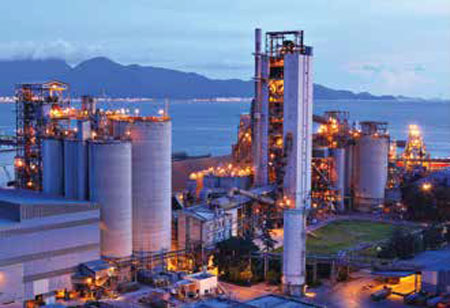
Vikram Ramesh
Head- Engineering & Design India
Vikram Ramesh have completed his Bachelor of Architecture in 2013 from Sathyabama University, Chennai. He started working as a Design manager in RSP Design Consultants , Bangalore and continued his professional journey for three years. In April 2022, he joined Panattoni as Head of Engineering and Design in India.
Vikram Ramesh engages in an exclusive interaction with the CEO Insight Magazine.
Take us through your educational and professional background. What motivates you as a new-age leader
I completed my Bachelor of Architecture in 2013 and then started working as a Design manager in RSP Design Consultants. In 2016, I joined Embassy Industrial Parks as a project manager which was a newly formed JV company between Warburg Pincus and Embassy Group to develop exclusive industrial and warehousing parks across India. I have been part of this company since its inception for 5.5 years and worked my way up to become the head of Engineering & Procurement after working for three years in the company. Later, in April 2022, I joined Panattoni as Head of Engineering and Design which is a privately held, full-service real estate company in the world.
As a new age leader, there are three major aspects that motivate me on daily basis, one being empowered in exploring new technologies and advancements, two having to resolve every complex issue that arises out of any project, and third
mentoring young generations and inspiring them to expand their abilities.
Define Panattoni as an organization and its current position in the industry.
Panattoni India is the European arm of Panattoni Development Company, which was founded in California in the US in 1986 by Carl Panattoni. In the subsequent years, the company expanded, initially in the US and Canada, then into the UK and across Europe. Panattoni marked its entry into India in April 2022.
Panattoni has grown to become the largest industrial specialist across Europe for the last 6 years, having delivered around 2 million Sqm. each year and deployed around 5.5 billion Euros of capital. With an extensive experience in the development of Industrial, Office, retail, and mixed-use projects, Panattoni has developed 52 million Sqm. of space globally since its inception.
What are the major projects that you have undertaken till now? How did you over come the challenges associated with them?
A few of the major projects are Chakan, Pune: 52 Acres with the Built-Up Potential of 1.20 million Sq.ft, Farukhnagar, Gurugram: 107 Acres with the BuiltUp Potential of 2.80 million Sq.ft, Hosur: 58 Acres with the Built-Up Potential of 1.30 million Sq. ft, Brigade Lakefront, ITPL, Bangalore, Infosys -1, Electronic city Phase -1, Bengaluru.
The most common challenges in any of these projects were cost and design optimization to suit the end user’s needs. Also, to have the basic principles, budget, and designs intact, cut and fill optimization to ensure the site surroundings and context is not disturbed are other challenges.
Tell me about the sustainable practices that Panattoni has adopted in its operations and the company’s visions toward a sustainable future.
As part of the ‘Go Earthwise’ strategy, Panattoni’s development standards are broadly focused on energy efficiency, well-being, water conservation, and ecology. Aiming to have a positive long-term impact, Panattoni focuses on building sustainably as it is the only viable future proof business model.
Define Panattoni as an organization and its current position in the industry.
Panattoni India is the European arm of Panattoni Development Company, which was founded in California in the US in 1986 by Carl Panattoni. In the subsequent years, the company expanded, initially in the US and Canada, then into the UK and across Europe. Panattoni marked its entry into India in April 2022.
Panattoni has grown to become the largest industrial specialist across Europe for the last 6 years, having delivered around 2 million Sqm. each year and deployed around 5.5 billion Euros of capital. With an extensive experience in the development of Industrial, Office, retail, and mixed-use projects, Panattoni has developed 52 million Sqm. of space globally since its inception.
Having opencommunication with your team increases the overall productivity of the organization
What are the major projects that you have undertaken till now? How did you over come the challenges associated with them?
A few of the major projects are Chakan, Pune: 52 Acres with the Built-Up Potential of 1.20 million Sq.ft, Farukhnagar, Gurugram: 107 Acres with the BuiltUp Potential of 2.80 million Sq.ft, Hosur: 58 Acres with the Built-Up Potential of 1.30 million Sq. ft, Brigade Lakefront, ITPL, Bangalore, Infosys -1, Electronic city Phase -1, Bengaluru.
The most common challenges in any of these projects were cost and design optimization to suit the end user’s needs. Also, to have the basic principles, budget, and designs intact, cut and fill optimization to ensure the site surroundings and context is not disturbed are other challenges.
Tell me about the sustainable practices that Panattoni has adopted in its operations and the company’s visions toward a sustainable future.
As part of the ‘Go Earthwise’ strategy, Panattoni’s development standards are broadly focused on energy efficiency, well-being, water conservation, and ecology. Aiming to have a positive long-term impact, Panattoni focuses on building sustainably as it is the only viable future proof business model.
Panattoni’s sustainability strategy is to minimize water and energy use, maximize waste recycling, support low-emission transportation, set up electrical charging stations, make solar enabled rooftops & open areas, and maintain rainwater onsite.
As we are just setting up operations in India, we will be setting our targets for achieving carbon neutrality once we have a couple of developments under construction. We intend to replicate our ‘Go Earthwise’ strategy in India as well due to the astounding feedback we have received from our varied stake holders in the international markets. Our focus will be to build smart warehouses while taking care of sustainable design scope, people and places, nature, and biodiversity, and promote good practices that benefit the ecology and environment.

Going forward, what are the changes in market behavior that you anticipate, and what advice would you give to the budding industry leaders?
The warehousing sector in India has been witnessing extensive growth, with the pandemic being a major catalyst. The consumers’ shift towards contactless operations and quick, doorstep deliveries have significantly boosted the e-commerce sector. As a result, several retailers and e-commerce players are seeking to expand their warehousing space and are thus driving the demand for modern warehouses.
My advice to the budding industry leaders would be to have clear set goals and understand the expectations of the company so that you can grow with the company and the company’s vision. A positive attitude and open communication with your team members will have a great impact on their productivity and also helps them keep their goals set.
Vikram Ramesh, Head of Engineering and Design India, Panattoni
Vikram Ramesh is an architectural professional with nine years of rich experience in industrial & logistics parks, residential development and office spaces. Currently, he is working as the head of engineering & design with Panattoni India
Hobbies: Long drive
Favorite Cuisine: Indian Cuisine
As we are just setting up operations in India, we will be setting our targets for achieving carbon neutrality once we have a couple of developments under construction. We intend to replicate our ‘Go Earthwise’ strategy in India as well due to the astounding feedback we have received from our varied stake holders in the international markets. Our focus will be to build smart warehouses while taking care of sustainable design scope, people and places, nature, and biodiversity, and promote good practices that benefit the ecology and environment.

Going forward, what are the changes in market behavior that you anticipate, and what advice would you give to the budding industry leaders?
The warehousing sector in India has been witnessing extensive growth, with the pandemic being a major catalyst. The consumers’ shift towards contactless operations and quick, doorstep deliveries have significantly boosted the e-commerce sector. As a result, several retailers and e-commerce players are seeking to expand their warehousing space and are thus driving the demand for modern warehouses.
My advice to the budding industry leaders would be to have clear set goals and understand the expectations of the company so that you can grow with the company and the company’s vision. A positive attitude and open communication with your team members will have a great impact on their productivity and also helps them keep their goals set.
Vikram Ramesh, Head of Engineering and Design India, Panattoni
Vikram Ramesh is an architectural professional with nine years of rich experience in industrial & logistics parks, residential development and office spaces. Currently, he is working as the head of engineering & design with Panattoni India
Hobbies: Long drive
Favorite Cuisine: Indian Cuisine

